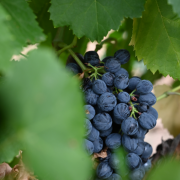

This year, the Consortium of international companies (Familia Torres from Spain, Moët & Hennessy from France, Sogrape from Portugal, Viña Concha y Toro from Chile and Yalumba Family Winemakers from Australia) is making an equivalent contribution to that determined by the OIV, which makes it possible to offer different types of research grants.
Priority themes for 2022 research grants
This year, special attention will be given to:
1. Conservation and Sustainable Management of Biodiversity and Ecosystems in Transitioning to a Nature-Positive Grape and Wine Value Chain
2. Sustainable management and adaptation to climate change.
3. Living and Healthy soils in viticulture
2022 - OIV Research grant program in support of priority programme fields
Application forms must be filled out and sent preferably by E-mail to job@oiv.int or by mail to OIV – Research grants – 12 Parvis de l'UNESCO – 21000 Dijon CEDEX,
Deadline for submitting requests: 6 November 2022
